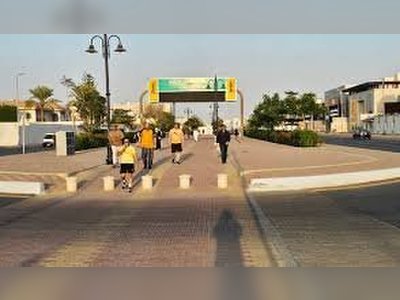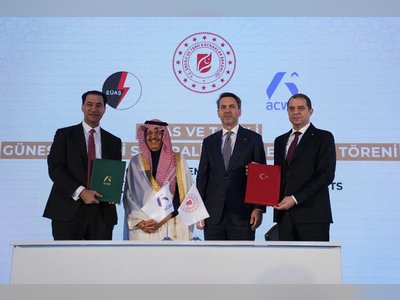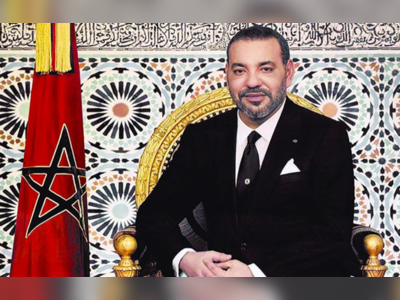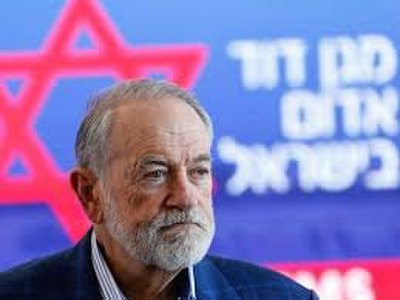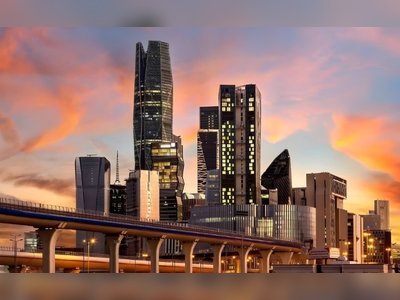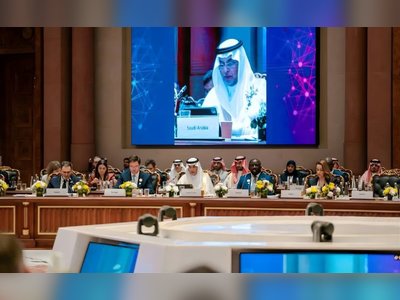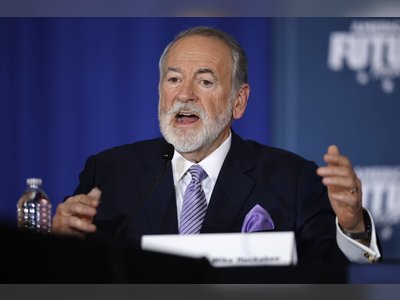
Arab League Jeddah summit’s final declaration emphasizes unity of stance on issues of security and stability
During the summit on Friday, the organization’s 32nd, members adopted the Jeddah Declaration, which reaffirmed the Arab League’s united stance on achieving security and stability across the Arab world and beyond.
This was only the second summit, following a gathering in Algeria last November, to take place following a three-year hiatus as a result of the COVID-19 pandemic.
It covered a number of topics, including tensions between Israel and Palestine, the conflict in Sudan, the peace process in Yemen, instability in Libya, and Lebanon’s political situation.
Significantly, this was the first time Syria had been invited to participate in an Arab League Summit since its suspension from the organization in 2011.
The summit’s final communique reaffirmed “the centrality of the Palestinian cause” to Arab countries and as one of the main factors for stability in the region. It condemned all practices and violations inflicted upon the Palestinians, their lives, properties and existence.
The communique also stressed the importance of intensifying efforts to achieve a comprehensive and just settlement of the Palestinian issue based on a two-state solution, as per UN Security Council Resolution 242 and the 2002 Arab Peace Initiative, to ensure the establishment of an independent Palestinian state based on the 1967 borders, with East Jerusalem as its capital.
Furthermore, it reiterated previous summit positions, including the need the need for protection of Muslim sites in Jerusalem.
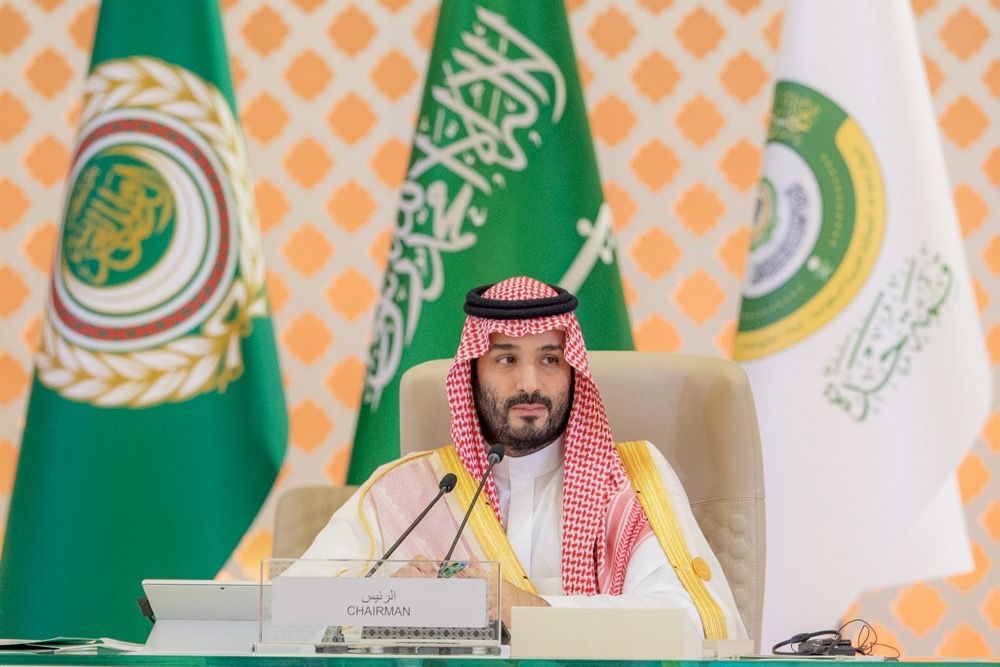 The crown prince emphasized that the Palestinian cause was, and still is, the pivotal issue for all Arabs.
The crown prince emphasized that the Palestinian cause was, and still is, the pivotal issue for all Arabs.
The conflict between the Israelis and Palestinians has escalated since Prime Minister Benjamin Netanyahu returned to power late last year at the helm of a coalition government that includes far-right and ultra-Orthodox parties.
Violence has flared in the West Bank, where the Israeli army has staged repeated raids against militants that have often flared into street clashes or gun battles.
Gaza also saw five days of cross-border fire between Israel and militant groups this month that killed 33 Palestinians and two people in Israel — the worst violence since a three-day escalation in August last year killed 49 Palestinians.
Israel, meanwhile, has been shaken by its biggest domestic political crisis in decades, as sustained mass protests have broken out against plans to reform the justice system, spearheaded by Netanyahu who continues to battle corruption charges in court.
On the issue of the conflict in Sudan, meanwhile, where clashes broke out on April 15 between the army and paramilitary group the Rapid Support Forces, the communique called on the warring parties to return to the negotiating table and for civilians to be protected.
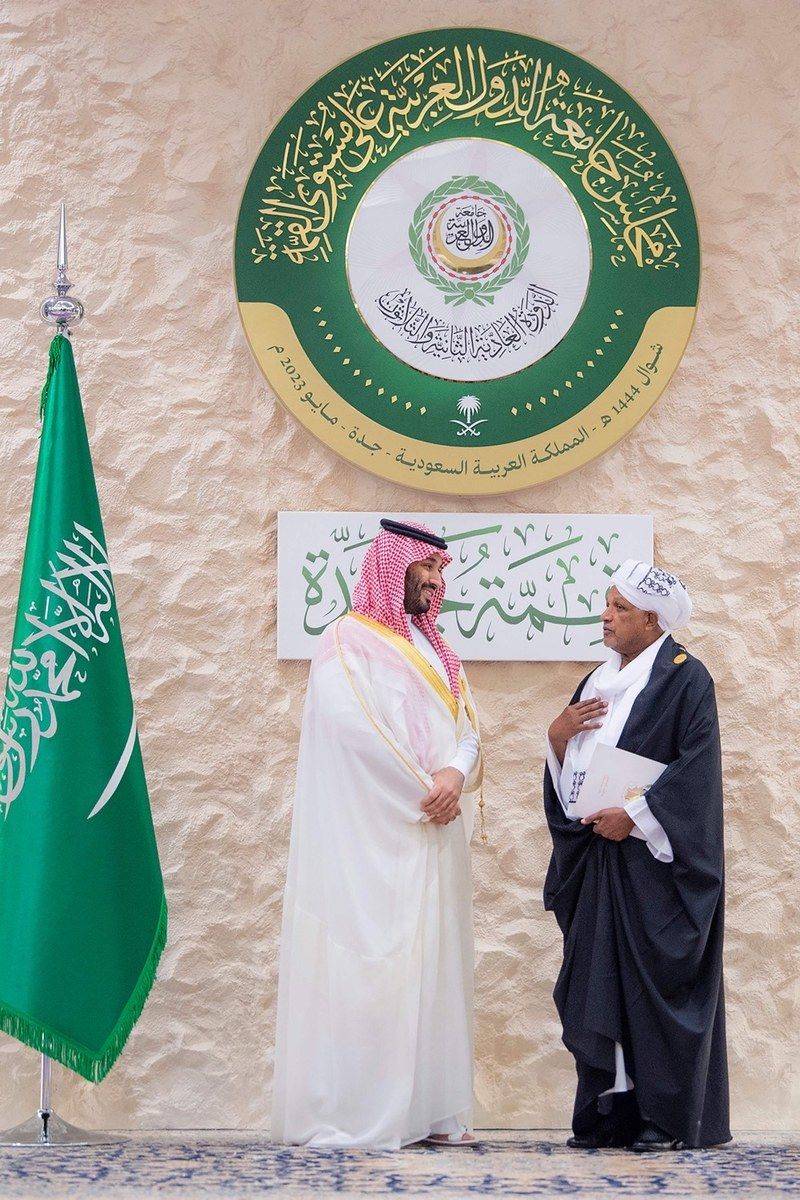 The crown prince with Dafallah Al-Haj, the envoy for Sudan’s army chief.
The crown prince with Dafallah Al-Haj, the envoy for Sudan’s army chief.
It rejected “foreign interference that could ignite the conflict and threaten regional security and stability,” while commending the critical steps taken during the Jeddah meetings that began on May 6 to continue talks and end the crisis.
About 1,000 people have been killed so far during the conflict, mainly in and around the capital Khartoum and in the long-troubled western region of Darfur. More than 5,000 people have been injured.
The crisis has sparked a massive displacement crisis, with more than 840,000 people displaced inside Sudan and at least 220,000 crossing borders into other countries, according to the UN. The UN Refugee Agency, UNHCR, has said 25 million people — more than half the population of Sudan — are in need of humanitarian aid and protection.
Syria’s Arab League membership was suspended in 2011 as a result of the regime’s violent crackdown on anti-government protests, which later spiraled into a 12-year civil war that has divided the nation and displaced half of its pre-war population.
The summit’s declaration stated that the return of Syria to the Arab League would contribute to the stabilization and reunification of the country, while assistance from member states would “help Syria resolve its crisis” and once again become a contributing member of the Arab world.
Regarding Yemen, the communique urged support for the stalled peace effort in the country. It reaffirmed international and regional efforts to reach a political solution to the crisis based on the three references in the Gulf initiative and the implementation of its mechanisms, the Yemeni national dialogue, and Security Council Resolution 2216.
The resolution stipulates that the Houthis must withdraw from all areas seized during the conflict, relinquish arms seized from military and security institutions, cease all actions falling exclusively within the authority of the legitimate government of Yemen, and fully implement previous Security Council resolutions.
 Syrian President Bashar Assad at the summit.
Syrian President Bashar Assad at the summit.
Last month, Mohammed Al-Jaber, Saudi Arabia’s ambassador to Yemen, arrived in Houthi-held Sanaa with a draft text of a peace proposal that addressed points of contention between the Yemeni government and the Houthis.
On the situation in Lebanon, the declaration expressed solidarity with the nation and called on “all Lebanese factions” to elect a president and implement reforms to pull Lebanon out of its ongoing economic crisis. The country has been without a president since Oct. 31, 2022, when Michel Aoun’s term officially ended.
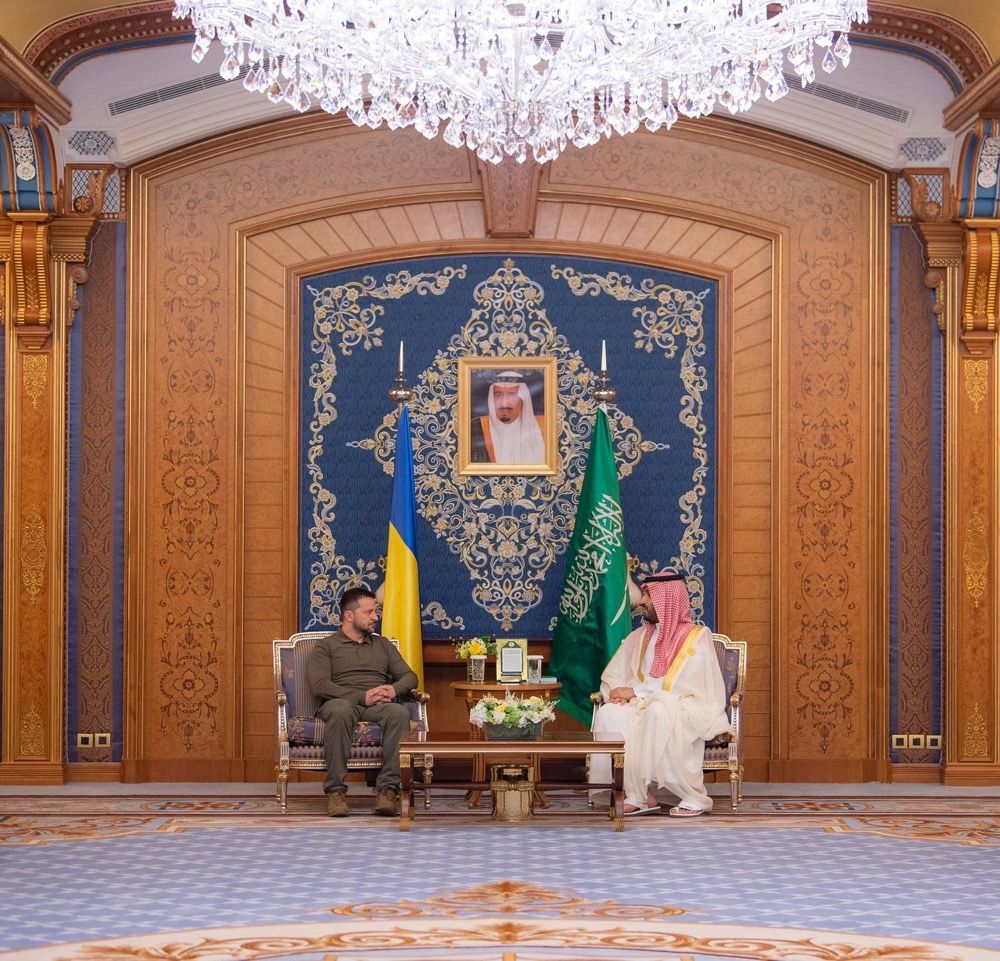 The crown prince with Ukraine’s President Volodymyr Zelensky.
The crown prince with Ukraine’s President Volodymyr Zelensky.
The declaration also rejected any and all interference in the internal affairs of Arab countries or support for unauthorized and illegitimate armed groups and militias, while stressing that internal military conflicts will not resolve any issues but only exacerbate the suffering of the region’s people and hold back development.
Finally, the declaration reaffirmed the importance of sustainable development, security, stability and living in peace as inherent rights for all Arab citizens, to be achieved by concerted and integrated efforts from all member states.
It committed those members to continuing the fight against crime and corruption at all levels, and to the mobilization of capabilities to create a future based on innovation in a way that serves and enhances security, stability and well-being.


